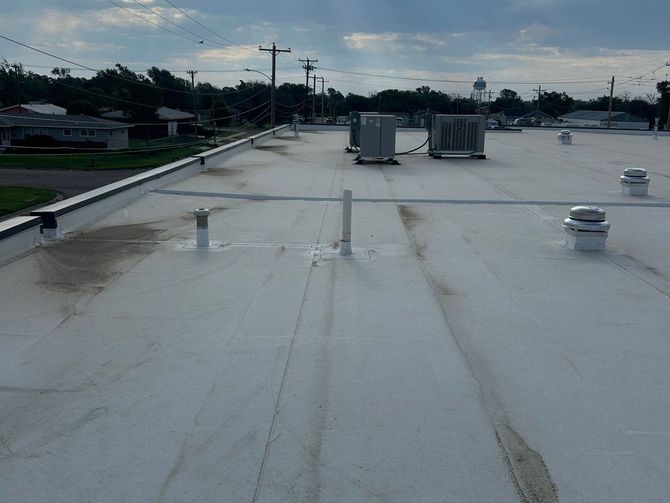The roof of your commercial property plays a critical role in its protection and energy efficiency. A well-built roof safeguards your building from weather damage, reduces maintenance costs, and can even cut down on energy expenses. This guide will help you understand the best roofing materials for your business and why quality roofing matters for the long term.
Understanding Your Commercial Roofing Needs
Commercial roofs face different challenges compared to residential roofs. Factors like climate, building structure, and the nature of your business operations all influence what type of roofing system is ideal. Whether you're managing a warehouse, an office building, or a retail store, understanding your specific needs will ensure that you choose the right roofing solution.
Top Commercial Roofing Materials
Several roofing materials are commonly used in commercial buildings. The best choice depends on your specific needs and budget. Each material offers distinct advantages, ensuring the right option for your business.
Option 1: Metal Roofing
Metal roofs are a top choice for commercial buildings due to their durability and energy efficiency. Steel and aluminum are the most common materials used, offering resistance to harsh weather conditions and excellent leak prevention. The reflective nature of metal roofs helps keep buildings cooler, lowering energy bills.
Flat Roof Systems
Many commercial properties use flat roofs due to their cost-efficiency and easy installation. Flat roofs are especially well-suited for modern buildings, with materials like TPO, EPDM, and PVC offering excellent waterproofing and insulation. Regular maintenance and good drainage practices help extend their lifespan.
3. Shingle Roofing
Shingle roofing is not as common for large commercial buildings, but it can be a good choice for smaller properties or those that need a traditional look. Asphalt shingles are affordable and come in various colors and styles, though they don't offer the same longevity as metal or flat roofs.
Roof Installation Process and Maintenance Tips
After selecting the right roofing material, the next step is installation. It’s essential to hire an experienced and licensed roofing contractor to ensure proper installation. This will help prevent leaks and ensure your roof lasts as long as possible.
Routine maintenance is crucial for extending the lifespan of your commercial roof. It’s recommended to inspect the roof twice a year, especially following severe weather. Look for issues such as missing shingles, cracks, or standing water. Cleaning gutters and removing debris will help prevent damage.

How Investing in a Quality Roof Protects Your Business
Investing in a quality roof pays off in the long run. A well-constructed roofing system shields your property from leaks, which can lead to costly damage to your building and assets. Additionally, it improves energy efficiency, cutting down on operating expenses and boosting your property's value. Proper maintenance ensures you avoid future costly repairs.
Final Thoughts: Selecting the Best Commercial Roofer
Finding the right roofing contractor is key to the success of your project. Seek out a licensed, experienced roofer who understands the unique requirements of commercial properties and can provide expert advice. The right contractor will also assist with installation and maintenance, ensuring the longevity of your roof.
Are you ready to upgrade your commercial roof? Contact us today to learn more about our roofing solutions and get a free consultation!
#CommercialRoofing #RoofingMaterials #BusinessProtection #MetalRoofing #FlatRoofing #RoofInstallation #EnergyEfficiency #RoofMaintenance